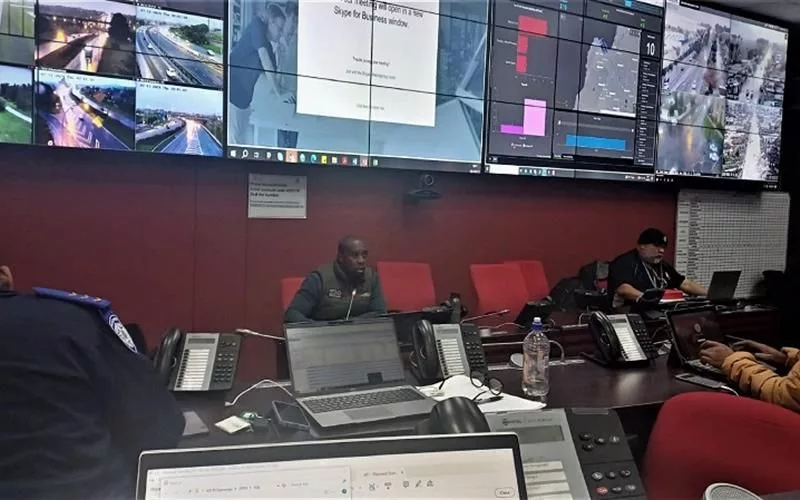The Deputy Minister of South Africa’s Department of Employment and Labour highlighted the success of the Commission for Conciliation, Mediation, and Arbitration (CCMA) and its settlement rate of around 70% in his speech discussing the evolution of the country’s labor dispute resolution mechanism following apartheid. He also emphasized the critical role of the National Economic Development and Labour Council (NEDLAC) in promoting cooperation between the government, organized labor, business, and community, and Productivity SA’s efforts to enhance productivity and encourage sustainable growth, development, and employment. The speech serves as a tribute to previous achievements and an affirmation of the ongoing determination to establish a prosperous and equitable future for all South Africans.
The Evolution of South Africa’s Workforce: Labor Department’s Budget Vote 2024/25
Learn about the transformation of South Africa’s labor dispute resolution mechanism following the apartheid era with the establishment of the Commission for Conciliation, Mediation, and Arbitration (CCMA). The National Economic Development and Labour Council (NEDLAC) has played a pivotal role in promoting cooperation between the Government, Organised Labour, Organised Business, and Community constituencies. Additionally, Productivity SA aims to enhance productivity and encourage sustainable growth, development, and employment by boosting competitiveness.
The South African National Assembly rumbled with the persuasive narrative of Deputy Minister Ntuthuko Mbongiseni Sibiya on the 11th of July 2024. He provided an in-depth discourse regarding Budget Vote – 31 for the Department of Employment and Labour. The Deputy Minister adeptly highlighted the Department’s milestones and envisioned tactics that aim to mould the employment and labour relations within the country.
The Journey of Labour Dispute Resolution
Deputy Minister Sibiya’s address prominently highlighted the immense transformation of the labour dispute resolution mechanism following the apartheid era. He drew attention to the dispute resolution scenario prior to 1994, portraying it as a maze of complexities, hindered by technicalities and extended durations that led to a rise in disputes and increased industrial action.
However, a significant change swept through the labour market in 1996 with the creation of the Commission for Conciliation, Mediation, and Arbitration (CCMA). This groundbreaking initiative was devised as a solution to the existing hurdles. The CCMA offered a straightforward, user-oriented, and cost-effective labour dispute resolution methodology. Since its establishment, the CCMA has handled over four million cases, consistently maintaining a settlement rate of around 70%. The accelerated process durations of 26 and 31 days for conciliation and arbitration respectively, much lesser than the specified limits in the Labour Relations Act, demonstrate the system’s effectiveness.
The Role of National Economic Development and Labour Council (NEDLAC)
In his speech, the Deputy Minister illuminated the critical role played by the National Economic Development and Labour Council (NEDLAC) in the sphere of social dialogue. NEDLAC has been crucial in promoting cooperation between the Government, Organised Labour, Organised Business, and Community constituencies. It has played a significant part in steering legislation and policy-making, having a profound influence on the 1995 Labour Relations Act, the 1997 Basic Conditions of Employment Act, and the revised Unemployment Insurance Act, among others.
NEDLAC’s impressive adaptability was also apparent during the Covid-19 pandemic when it coordinated responses, implemented the Temporary Employee Relief Scheme (TERS), and facilitated a vaccination campaign. Moreover, NEDLAC’s prompt approach in response to the 2021 unrest in the KwaZulu-Natal and Gauteng provinces led to a set of measures including support for uninsured businesses and addressing unemployment issues.
Productivity SA and Its Achievements
Founded under the Employment Services Act, No. 4 of 2014, Productivity SA aims to enhance productivity and thus encourage sustainable growth, development, and employment by boosting competitiveness. The Deputy Minister applauded the Business Turnaround and Recovery Programme (BT&R), which has, so far, enrolled 250 companies and effectively preserved 20,723 jobs.
The unwavering dedication and commitment of the CCMA, NEDLAC, and Productivity SA towards promoting inclusive growth, equal opportunities, and efficient governance cannot be overstated. Their accomplishments mirror the principles of the Department of Employment and Labour and its ongoing mission to establish a thriving South Africa.
Concluding Remarks
The 7th Administration’s inaugural budget vote for the Department of Employment and Labour, as indicated by Deputy Minister Sibiya, extends beyond a mere financial plan. It serves as a blueprint of ambition, a tribute to previous achievements, and an affirmation of the ongoing determination to sculpt a prosperous and equitable future for all South Africans.
1. What is the Commission for Conciliation, Mediation, and Arbitration (CCMA)?
The Commission for Conciliation, Mediation, and Arbitration (CCMA) is a labor dispute resolution mechanism established in South Africa in 1996. The CCMA offers a straightforward, user-oriented, and cost-effective labor dispute resolution methodology and has consistently maintained a settlement rate of around 70%.
2. What is the National Economic Development and Labour Council (NEDLAC)?
The National Economic Development and Labour Council (NEDLAC) is a council that promotes cooperation between the Government, Organised Labour, Organised Business, and Community constituencies in South Africa. NEDLAC has played a significant part in steering legislation and policy-making and coordinating responses during crises such as the Covid-19 pandemic and the 2021 unrest in the KwaZulu-Natal and Gauteng provinces.
3. What is Productivity SA, and what does it aim to achieve?
Productivity SA is an organization founded under the Employment Services Act, No. 4 of 2014, with the aim of enhancing productivity and encouraging sustainable growth, development, and employment by boosting competitiveness. Its Business Turnaround and Recovery Programme (BT&R) has enrolled 250 companies and preserved 20,723 jobs so far.
4. What role did NEDLAC play in policy-making?
NEDLAC has played a significant part in steering legislation and policy-making in South Africa, having a profound influence on the 1995 Labour Relations Act, the 1997 Basic Conditions of Employment Act, and the revised Unemployment Insurance Act, among others.
5. How effective is the labor dispute resolution process provided by the CCMA?
The CCMA has consistently maintained a settlement rate of around 70% since its establishment in 1996, making it an effective and efficient labor dispute resolution mechanism in South Africa.
6. What is the Department of Employment and Labour’s mission for South Africa?
The Department of Employment and Labour’s ongoing mission is to establish a thriving South Africa by promoting inclusive growth, equal opportunities, and efficient governance. The achievements of the CCMA, NEDLAC, and Productivity SA mirror these principles.












